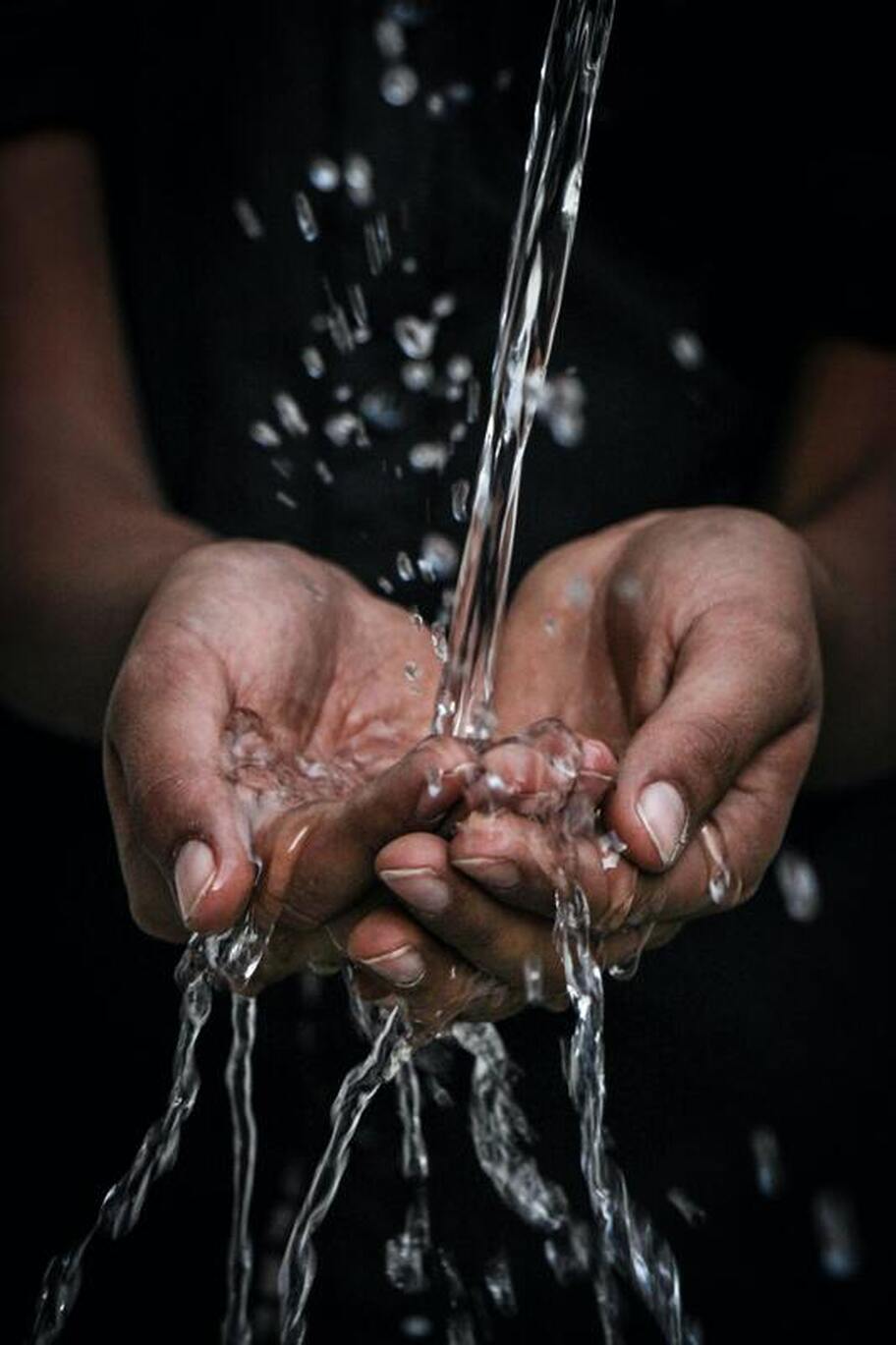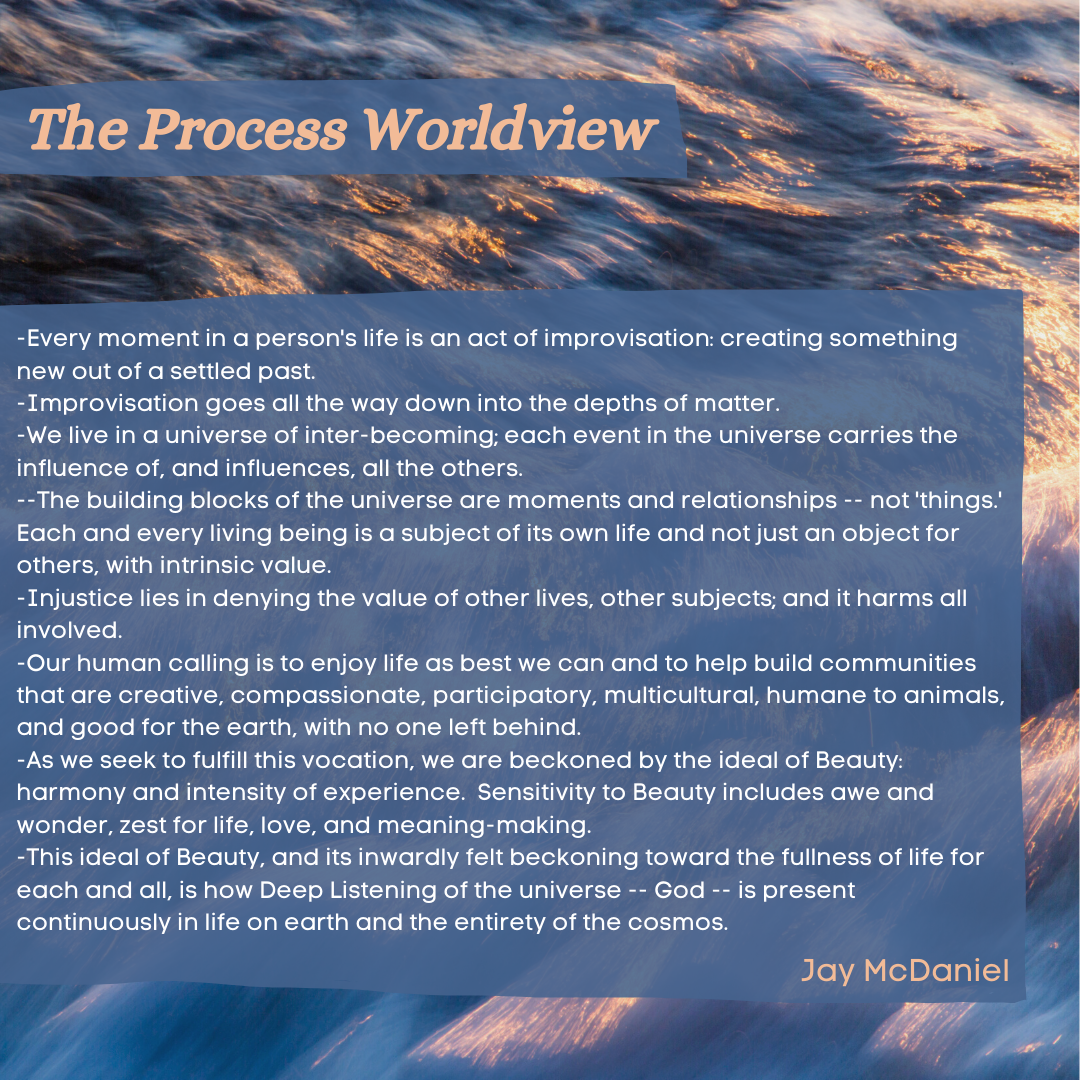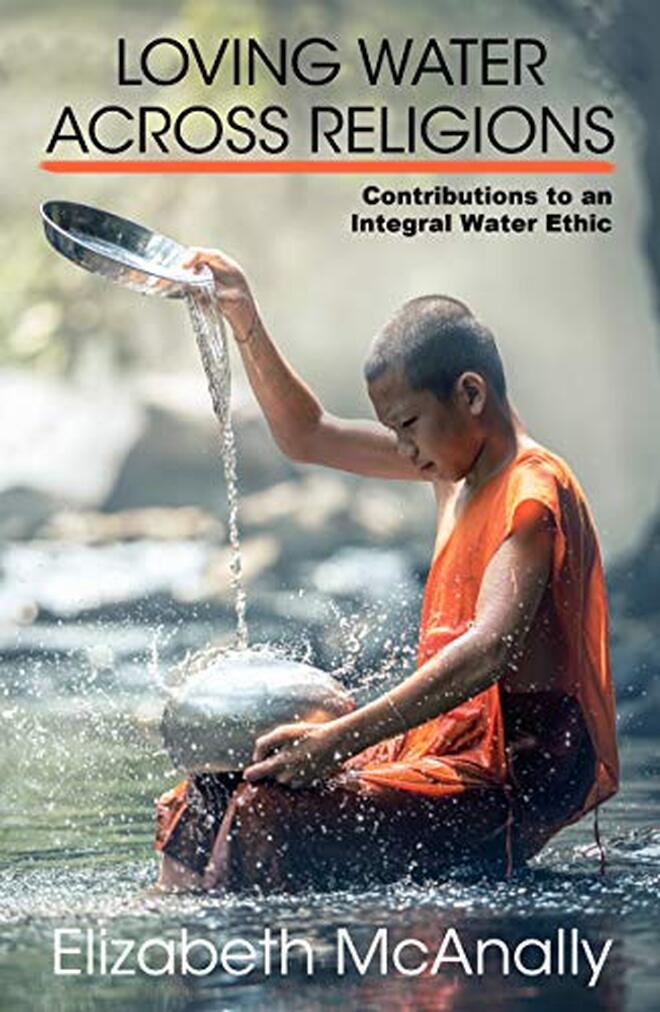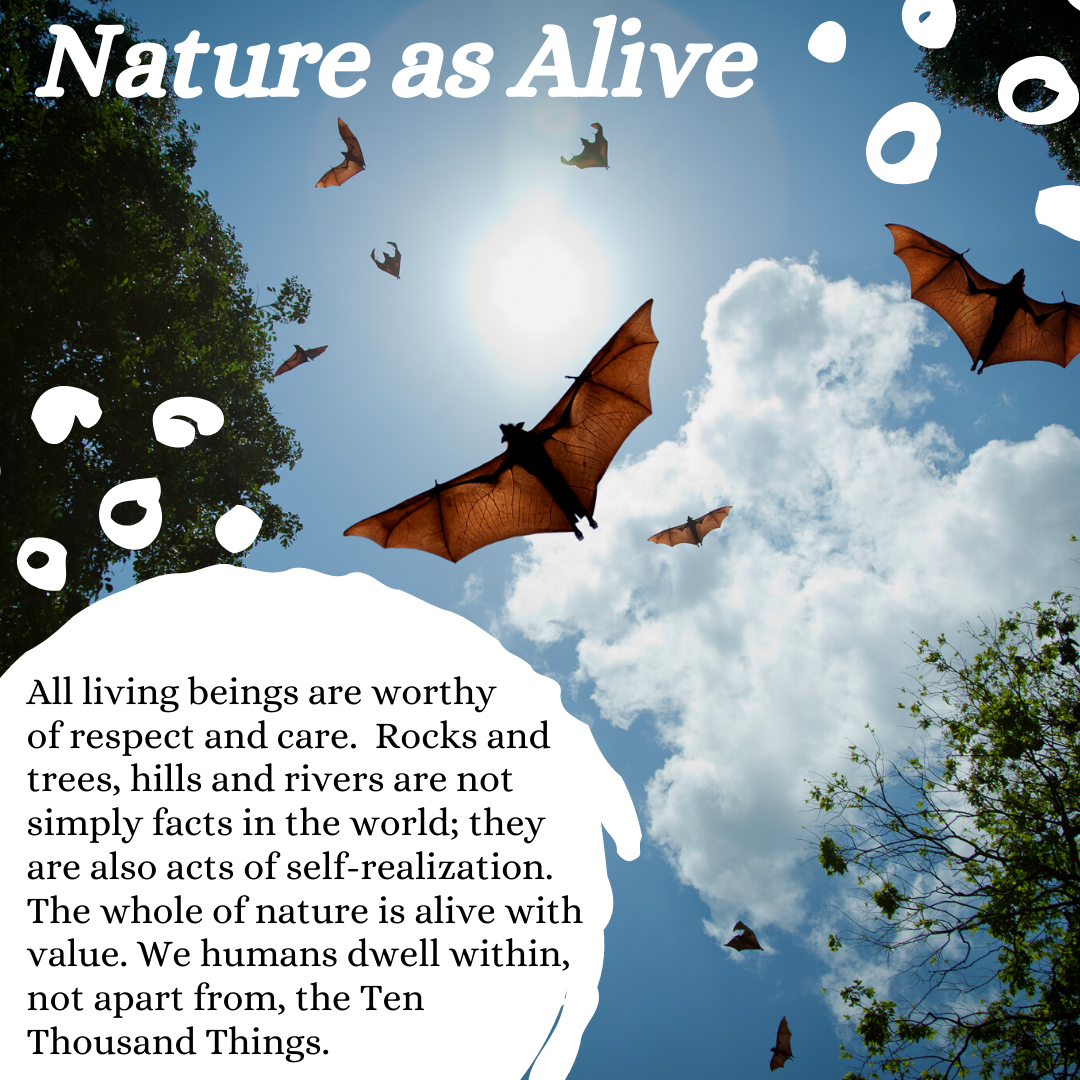- Home
- Process Worldview
- Community
- Art and Music
- Whitehead and Process Thinking
- Podcasts
- Spirituality
- Ecological Civilization
- Education
- Contact
- Social Justice
- Science
- Animals
- Sacred Poems
- Whitehead Videos
- Index of All Titles
- Practicing Process Thought
- Process Spirituality: A Spiritual Alphabet
- Recent Posts
Water as a Bodhisattva
"Feeling into the flows of water, seeing the beauty of water, tasting
this refreshing drink, hearing the sound of immense waterfalls
or meandering creeks, smelling rain on the earth."
"Because water flows within our bodies and throughout the world,
there can be no rigid distinction between self and other."
--Elizabeth McAnally
Let's say you are a water person. You find a special kind of spiritual nourishment from water: rivers, lakes, the ocean, water in bowls, the flow of water from faucets. In the language of Buddhism, water is, for you, a bodhisattva: a soul friend who helps save you from the suffering of isolation. fragmentation, and aloneness. Of course, water saves you and others in additional ways as well: cooking, bathing, washing, and healing. And it saves other living beings, too, in the practical arts of living. As Thich Nhat Hanh puts it, its benefits are numberless.
You may have other bodhisattvas as well: friends and family, trees, companion animals, soil and sunshine, music, flowers, and vegetable gardens. You may realize that, when it comes to the living of a life, you have many allies, many companions, many mentors. Maybe, for you, the whole earth is a bodhissatva, as are the stars. Elizabeth McAnally certainly thinks so. But water, for you as for McAnally, is certainly among your many friends in the journey, and it may well have a key place in the pantheon of sacred powers. Yes, you are a water person.
*
Let's quickly add that you also want to live with respect and care for the community of life on earth, water included. You want to help build local communities that are creative, compassionate, participatory, humane to animals, and good for the Earth, with no one left behind. You know about the very serious problem of freshwater scarcity in our world today. You know that the 21st century is already suffering from a global water crisis: freshwater scarcity, the need for safe drinking water and sanitation, pollution, and climate change. You seek a water ethic to go along with your water spirituality.
If you are in this situation, I heartily recommend Elizabeth McAnally's marvelous book Loving Water Across Traditions (Orbis Press 2019F). It will help you (1) understand the contemporary global water crisis; (2) reflect upon how certain religious traditions - Christianity, Hinduism, and Buddhism - can help support an attitude of reverence for water; and (3) learn about practices that might help you enter into reverence for water. It will also invite you (4) to consider the fact that water itself is alive with subjectivity and agency: a true bodhisatta in the literal sense.
Here are its chapters:
You may have other bodhisattvas as well: friends and family, trees, companion animals, soil and sunshine, music, flowers, and vegetable gardens. You may realize that, when it comes to the living of a life, you have many allies, many companions, many mentors. Maybe, for you, the whole earth is a bodhissatva, as are the stars. Elizabeth McAnally certainly thinks so. But water, for you as for McAnally, is certainly among your many friends in the journey, and it may well have a key place in the pantheon of sacred powers. Yes, you are a water person.
*
Let's quickly add that you also want to live with respect and care for the community of life on earth, water included. You want to help build local communities that are creative, compassionate, participatory, humane to animals, and good for the Earth, with no one left behind. You know about the very serious problem of freshwater scarcity in our world today. You know that the 21st century is already suffering from a global water crisis: freshwater scarcity, the need for safe drinking water and sanitation, pollution, and climate change. You seek a water ethic to go along with your water spirituality.
If you are in this situation, I heartily recommend Elizabeth McAnally's marvelous book Loving Water Across Traditions (Orbis Press 2019F). It will help you (1) understand the contemporary global water crisis; (2) reflect upon how certain religious traditions - Christianity, Hinduism, and Buddhism - can help support an attitude of reverence for water; and (3) learn about practices that might help you enter into reverence for water. It will also invite you (4) to consider the fact that water itself is alive with subjectivity and agency: a true bodhisatta in the literal sense.
Here are its chapters:
- The Global Water Crisis and the Need for an Integral Water Ethic
- An Integral Ecological Approach to Water
- Christianity, Baptism, and Sacramental Consciousness of Water
- Hinduism, the Yamuna River, and Loving Service of Water
- Buddhism, Bodhisattvas, and Compassionate Wisdom
- Contemplative Practices for Cultivating an Integral Water Ethic
- Conclusion: Loving Water and All Beings
Let's imagine further that you are aware of a particular thinker by whom she is influenced, Thomas Berry, and of his idea, nourished by Teilhard de Chardin, that the universe is a communion of subjects and not simply a collection of objects. Inspired by Berry, you believe that water, too, has a kind of subjectivity, an interiority, an aliveness of its own, which is hidden from those who think of the world only in terms of objects for manipulation and use.
And let's imagine still further that you are influenced by the process outlook on life, itself so resonant with Berry and Teilhard, but shaped by the philosopher Alfred North Whitehead. Here are a couple of snapshots outlining the process outlook on life.
And let's imagine still further that you are influenced by the process outlook on life, itself so resonant with Berry and Teilhard, but shaped by the philosopher Alfred North Whitehead. Here are a couple of snapshots outlining the process outlook on life.
If you are influenced by process philosophy as well as by Thomas Berry, then here as well you will appreciate McAnally's book, because she so richly shows what it can mean to live with respect for the subjectivity of water and thus to help build the kinds of communities sorely needed in our time. And because she, too, senses the sheer beauty of water as a beloved kin in our dynamic Earth Community. I think of her book as process philosophy in practice.
It shows how water practice, spiritually and ethically, is a portal into what it means to be connected with a larger whole, within which and beyond which lies a Deep Listening: a cosmic Bodhisattva, filled with compassion, in whose presence the universe lives and moves and has its being, and whose very life is fluid and lovingly adaptive to each new situation, like Jesus, like the Buddha, like the Tao, like water.
The interview with her below give you a sense of her book, her project, and her sensitivity. And after the interview, you'll find excerpts from her book. Enjoy.
It shows how water practice, spiritually and ethically, is a portal into what it means to be connected with a larger whole, within which and beyond which lies a Deep Listening: a cosmic Bodhisattva, filled with compassion, in whose presence the universe lives and moves and has its being, and whose very life is fluid and lovingly adaptive to each new situation, like Jesus, like the Buddha, like the Tao, like water.
The interview with her below give you a sense of her book, her project, and her sensitivity. And after the interview, you'll find excerpts from her book. Enjoy.
Excerpts from Loving Water Across Traditions
Recognizing that the amount of water on Earth is finite demands a shift in values; humans need to learn to regard water not as a resource to be exploited but as a source of life to be cared for. This book points to ways of cultivating a respectful and reverential relationship with water through an ethic rooted in an integral approach to ecology.
*
Thus, an integral water ethic holds that water is not a mere passive object to be exploited for human purposes; instead, this approach recognizes that water is an active and vital member of the Earth community that has intrinsic value. I am deeply inspired by the integral ecological and cosmological work of the cultural historian Thomas Berry, who writes that “the universe is a communion of subjects, not a collection of objects.” I also draw from the integral approaches to ecology as articulated by Mary Evelyn Tucker and John Grim, Leonardo Boff, and Ken Wilber. Recognizing that water has intrinsic value, participates as a vital member of a communion of subjects in the Earth community, and inspires personal experiences and cultural worldviews will help lead humans to interact with water with respect and care.
*
Personal experiences and cultural worldviews are needed (just as much as objective perspectives from economics, politics, ecology, biology, and other disciplines) when working to determine appropriate actions toward particular bodies of water. Listening to and representing the many voices of water is necessary for addressing water issues in creative, effective, and democratic ways.
*
Feeling into the flows of water, seeing the beauty of water, tasting this refreshing drink, hearing the sound of immense waterfalls or meandering creeks, smelling rain on the earth—these simple activities have the ability to be meaningful and powerful. Through directly engaging with water, we can heighten our ability to care for water and all our Earth community. Through interacting with water with all our senses, we can notice patterns and see meaningful connections.
*
Relating to water in an integral mode entails acknowledging that water (and all phenomena) has not only exterior, objective dimensions but also interior, subjective qualities.
*
These are just a small sample of contemplative practices. Many other practices exist. For example, one could make a pilgrimage to sacred waters, engage mindfully in aquatic sports (swimming, surfing, kayaking, fishing), meditate while soaking in a bathtub or hot tub, or create water music. Given the infinite creativity of the human imagination, many practices are waiting to be developed. I invite you to consider ways in your own life that you can develop a more intimate connection with water. It is my hope that as we deepen our personal relationship with water, we will find practical ways of strengthening our commitment to be of service to our entire Earth community.
McAnally, Elizabeth. Loving Waters Across Religions: Contributions to an Integral Water Ethic (Ecology and Justice) (p. 122). Orbis Books. Kindle Edition.
Excerpt from What Can Water Teach Us?
by Elizabeth McAnally
One of my personal spiritual practices is a blend of taiji (tai chi) and qigong, Chinese martial and healing arts that involve working with the vital energy of the body, mind, and cosmos through slow, meditative movements. Throughout my twelve years of practice, I’ve become aware that taiji and qigong teach me how to flow like water and notice the flows of energy present throughout my body and the world. I especially enjoy practicing near bodies of water, because I can more vividly include water in my meditations and move my body like water under its guidance. Embodying the flows of water through such imaginative imitation is very inspiring and instructive for me, physically, emotionally, cognitively, and spiritually. Through their wise movements, taiji and qigong practices can provide a vivid, bodily-felt sense that all things are composed of qi (chi), energy or life force. Humans and the world are intimately interrelated with this cosmic stuff of life. And that, to me, feels profoundly confirmed by water. Because water flows within our bodies and throughout the world, there can be no rigid distinction between self and other. This kind of reciprocity—the reciprocal relationship between the elements in the body and the elements in the world—this is what taiji and qigong can teach and also what water can teach.



